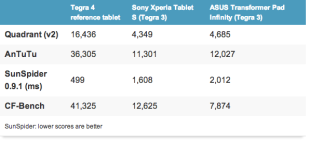With his striking beard and starched uniform, former Surgeon General Dr. C. Everett Koop became one of the most recognizable figures of the Reagan era — and one of the most unexpectedly enduring.
His nomination in 1981 met a wall of opposition from women's groups and liberal politicians, who complained President Ronald Reagan selected Koop, a pediatric surgeon and evangelical Christian from Philadelphia, only because of his conservative views, especially his staunch opposition to abortion.
Soon, though, he was a hero to AIDS activists, who chanted "Koop, Koop" at his appearances but booed other officials. And when he left his post in 1989, he left behind a landscape where AIDS was a top research and educational priority, smoking was considered a public health hazard, and access to abortion remained largely intact.
Koop, who turned his once-obscure post into a bully pulpit for seven years during the Reagan and George H.W. Bush administrations and who surprised both ends of the political spectrum by setting aside his conservative personal views on issues such as homosexuality and abortion to keep his focus sharply medical, died Monday at his home in Hanover, N.H. He was 96.
An assistant at Koop's Dartmouth College institute, Susan Wills, confirmed his death but didn't disclose its cause.
Dr. Richard Carmona, who served as surgeon general a decade ago under President George W. Bush, said Koop was a mentor to him and preached the importance of staying true to the science even if it made politicians uncomfortable.
"He set the bar high for all who followed in his footsteps," Carmona said.
Although the surgeon general has no real authority to set government policy, Koop described himself as "the health conscience of the country" and said modestly just before leaving his post that "my only influence was through moral suasion."
A former pipe smoker, Koop carried out a crusade to end smoking in the United States; his goal had been to do so by 2000. He said cigarettes were as addictive as heroin and cocaine. And he shocked his conservative supporters when he endorsed condoms and sex education to stop the spread of AIDS.
Chris Collins, a vice president of amFAR, the Foundation for AIDS Research, said many people don't realize what an important role Koop played in the beginning of the AIDS epidemic.
"At the time, he really changed the national conversation, and he showed real courage in pursuing the duties of his job," Collins said.
Even after leaving office, Koop continued to promote public health causes, from preventing childhood accidents to better training for doctors.
"I will use the written word, the spoken word and whatever I can in the electronic media to deliver health messages to this country as long as people will listen," he promised.
In 1996, he rapped Republican presidential hopeful Bob Dole for suggesting that tobacco was not invariably addictive, saying Dole's comments "either exposed his abysmal lack of knowledge of nicotine addiction or his blind support of the tobacco industry."
Although Koop eventually won wide respect with his blend of old-fashioned values, pragmatism and empathy, his nomination met staunch opposition.
Foes noted that Koop traveled the country in 1979 and 1980 giving speeches that predicted a progression "from liberalized abortion to infanticide to passive euthanasia to active euthanasia, indeed to the very beginnings of the political climate that led to Auschwitz, Dachau and Belsen."
But Koop, a devout Presbyterian, was confirmed after he told a Senate panel he would not use the surgeon general's post to promote his religious ideology. He kept his word.
In 1986, he issued a frank report on AIDS, urging the use of condoms for "safe sex" and advocating sex education as early as third grade.
He also maneuvered around uncooperative Reagan administration officials in 1988 to send an educational AIDS pamphlet to more than 100 million U.S. households, the largest public health mailing ever.
Koop personally opposed homosexuality and believed sex should be saved for marriage. But he insisted that Americans, especially young people, must not die because they were deprived of explicit information about how HIV was transmitted.
Koop further angered conservatives by refusing to issue a report requested by the Reagan White House, saying he could not find enough scientific evidence to determine whether abortion has harmful psychological effects on women.
Koop maintained his personal opposition to abortion, however. After he left office, he told medical students it violated their Hippocratic oath. In 2009, he wrote to Senate Majority Leader Harry Reid, urging that health care legislation include a provision to ensure doctors and medical students would not be forced to perform abortions. The letter briefly set off a security scare because it was hand delivered.
Koop served as chairman of the National Safe Kids Campaign and as an adviser to President Bill Clinton's health care reform plan.
At a congressional hearing in 2007, Koop spoke about political pressure on the surgeon general post. He said Reagan was pressed to fire him every day, but Reagan would not interfere.
Koop, worried that medicine had lost old-fashioned caring and personal relationships between doctors and patients, opened his institute at Dartmouth to teach medical students basic values and ethics. He also was a part-owner of a short-lived venture, drkoop.com, to provide consumer health care information via the Internet.
Koop was born in the New York City borough of Brooklyn, the only son of a Manhattan banker and the nephew of a doctor. He said by age 5 he knew he wanted to be a surgeon and at age 13 he practiced his skills on neighborhood cats.
He attended Dartmouth, where he received the nickname Chick, short for "chicken Koop." It stuck for life.
Koop received his medical degree at Cornell Medical College, choosing pediatric surgery because so few surgeons practiced it.
In 1938, he married Elizabeth Flanagan, the daughter of a Connecticut doctor. They had four children, one of whom died in a mountain climbing accident when he was 20.
Koop was appointed surgeon-in-chief at Children's Hospital in Philadelphia and served as a professor at the University of Pennsylvania School of Medicine.
He pioneered surgery on newborns and successfully separated three sets of conjoined twins. He won national acclaim by reconstructing the chest of a baby born with the heart outside the body.
Although raised as a Baptist, he was drawn to a Presbyterian church near the hospital, where he developed an abiding faith. He began praying at the bedside of his young patients — ignoring the snickers of some of his colleagues.
Koop's wife died in 2007, and he married Cora Hogue in 2010.
He was by far the best-known surgeon general and for decades afterward was still a recognized personality.
"I was walking down the street with him one time" about five years ago, recalled Dr. George Wohlreich, director of the College of Physicians of Philadelphia, a medical society with which Koop had longstanding ties. "People were yelling out, 'There goes Dr. Koop!' You'd have thought he was a rock star."
___
Ring reported from Montpelier, Vt. Cass reported from Washington. AP Medical Writers Lauran Neergaard in Washington and Mike Stobbe in New York contributed to this report.












